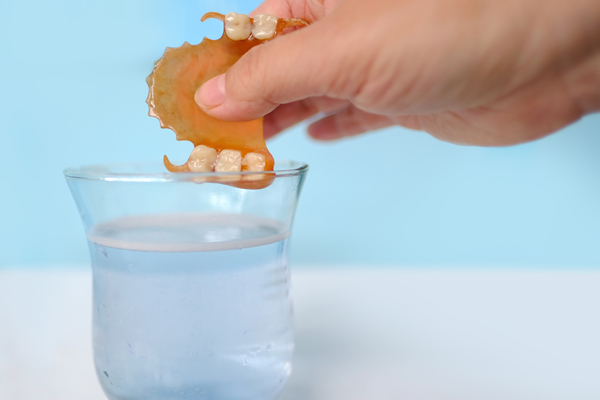How Does the Jawbone Affect the Ability to Get Dental Implants?

Dental implants are a great treatment option for patients who have lost one or more teeth. It is a solution that preserves your oral health, restores confidence and provides a youthful appearance. Many people who lose a tooth are great candidates for dental implants. This process involves placing an implant post on the lower or upper jawbone.
However, patients need to have adequate amounts of healthy jawbone tissue to be eligible for the procedure. When a person has had dental issues like periodontal disease, they might not have enough healthy bone tissue for dental implants.
How your jawbone can lose its density
For many adults, the leading cause of tooth loss is severe periodontal disease, which works to destroy the gums. The disease also destroys the jawbone structure, which is responsible for holding teeth roots in place. Once the jawbone is weak, it becomes easier for teeth to become loose. Even after getting treatment for periodontal disease, your jawbone would not receive adequate stimulation since some teeth are missing. This, in turn, leads to further bone tissue loss.
Let us look at some common causes of jawbone deterioration:
1. Tooth extractions
If a tooth is extracted and not replaced with a prosthetic, jawbone tissue loss often occurs. A tooth’s natural roots stimulate the jaw when pressure is applied to the tooth, and that keeps the soft tissue around it healthy. The alveolar bone, the part of the jawbone that holds the teeth in position, will not receive the appropriate stimulation. The net effect will be the breaking down of the jawbone.
2. Damaged teeth
If a tooth is broken by trauma and the biting surface comes off, proper bone stimulation will stop. This happens since the tooth is no longer being used to bite down on food. Some of the common causes of trauma include jaw fractures, having your teeth knocked out after an accident or an injury from a blow.
3. Misaligned teeth
Misaligned teeth can lead to a situation where there is no opposing tooth structure for some teeth. This can lead to areas in the jaw not being properly stimulated since the teeth do not make contact with one another.
Why healthy jawbone tissue is important for dental implants
Dental implants help to stop the jawbone deterioration that occurs as a result of missing teeth roots. A healthy jawbone is needed to secure implants, so a dentist might recommend bone grafts for patients who do not have the necessary amount of bone tissue.
Jawbone grafting is the surgical process of adding biocompatible bone structure to the jawbone. Once the procedure is complete, the jawbone should be strong enough to support the implants. You will need to wait until your jaw has fully healed from the graft before proceeding with implant installation. This can take up to four months.
Are you a good candidate for dental implants?
Stop by our Flushing office to find out more about the health of your jawbone and see if you qualify for dental implants.
Request an appointment here: https://www.queensfamilydental.com or call Queens Family Dental at (718) 954-9425 for an appointment in our Flushing office.
Check out what others are saying about our dental services on Yelp: Dental Implants.
Recent Posts
Dental ridge preservation is a way to preserve the socket after a missing tooth develops. Dental implants require adequate bone support, and bone loss can occur after losing a tooth if the bone density is not preserved. This review offers insights into the purpose of dental ridge preservation as it relates to dental implants treatment. Ridge…
Dentures are the go-to solution initially for many people after tooth loss occurs. While dentures can restore appearance, they are not as much of a long-term solution as Dental Implants. Many dentists recommend patients replace their dentures with dental implants for increased comfort, improved function and to enjoy a range of other benefits. Dentures rest upon…
The dental implant has become one of the most effective restorative procedures for people who have lost one or more teeth. The convenience, durability and recent innovations in implant design have made the process popular. Nevertheless, since implants need certain bone mass to integrate properly in the mouth, placing the dental implant is sometimes a…
A dental implant restoration is a method of teeth replacement that offers long-term durability and a natural feel and function for patients. It involves the placement of a dental implant (a titanium dental post) into the jawbone, followed by attaching the abutment and prosthetic (crown, bridge or denture). The dental implant restoration process involves a consultation…


